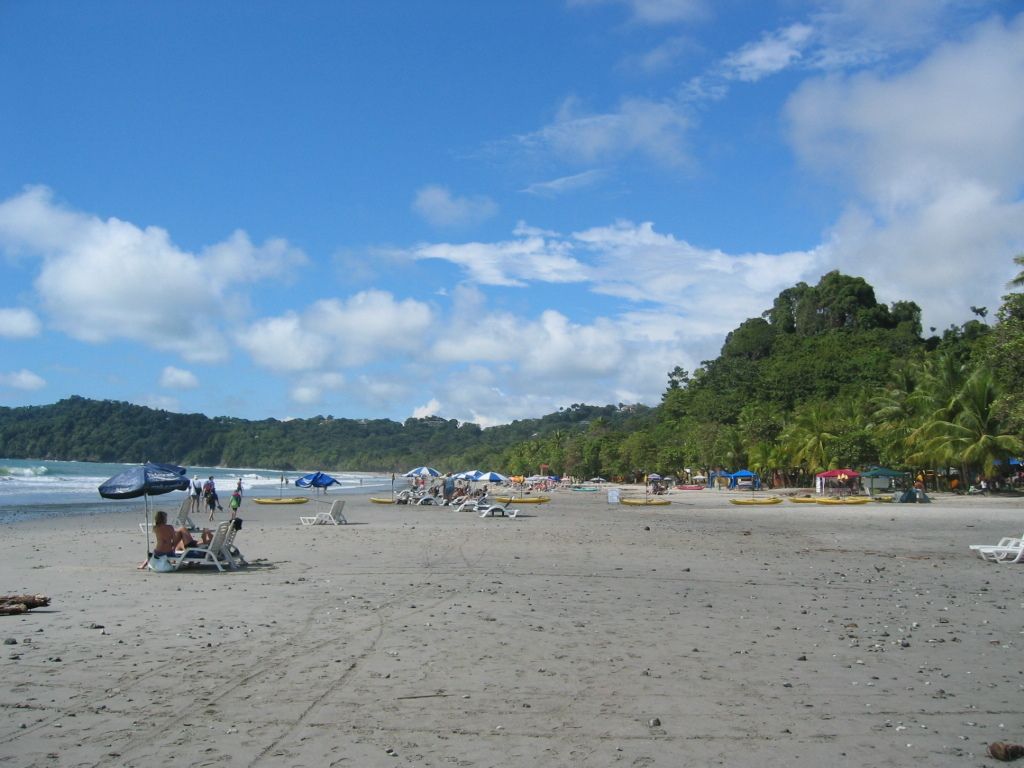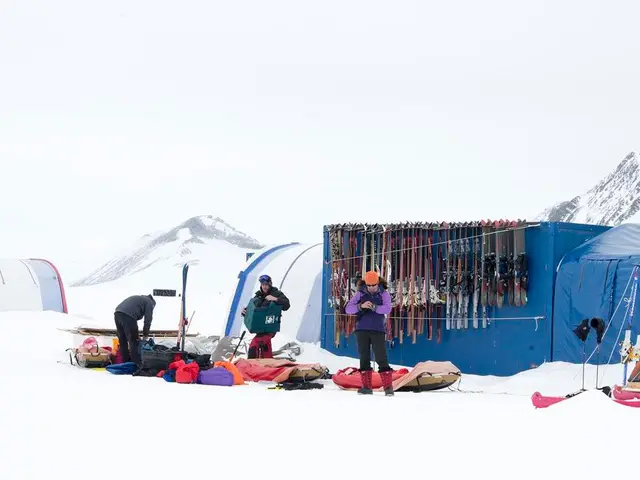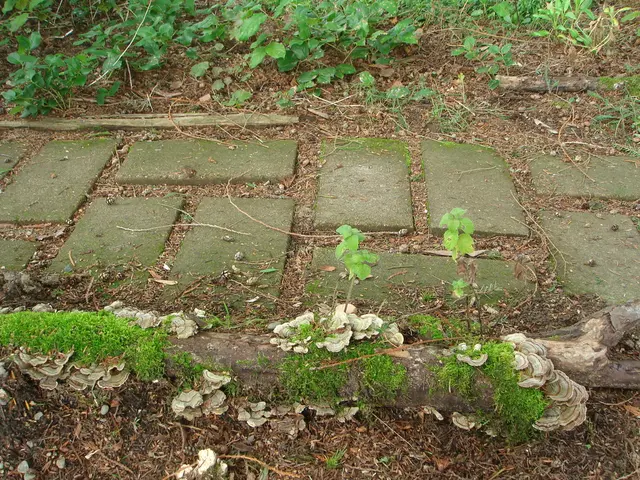Accommodation Appraisal: Blyton Bungalow, Coorg – Insightful Evaluation of the Lodging Establishment
Stepping away from the sweltering heat of Delhi to land in Bengaluru was bliss, but journeying to Kodagu (once known as Coorg) and settling into the Blyton Bungalow nestled within the Poomaale Estate was pure rejuvenation for my soul. The expedition, accompanied by travel-weary limbs, transformed into something entirely different during our trip, thanks to Munaf, a friendly fellow from Mysuru, who regaled me en route Ramanagara with stories about "Sholay" with great enthusiasm.
As we ventured deeper into Coorg, via Nagarhole, we arrived at a secluded village where the Poomaale property rested. The winding paths on the hills seemed to lead nowhere, and it was then that I beheld the captivating charm of the Blyton Bungalow, hidden amidst verdant foliage, like a secret utopia.
Sign up for our Hotline June 2025
Subscribe to the latest Outlook Traveller issue
Initial Sights of Blyton Bungalow
Initially, Blyton Bungalow might bring to mind ghost stories from its colonial past, but fear not! A far cry from frightful tales, it's anything but haunted. When the new owners arrived at the bungalow, they found it in a state of disrepair. However, its enchanting atmosphere, with shades of an Enid Blyton novel, convinced them to give it a new lease of life, and thus, it retains its namesake.
Upon arriving at the porch, Aranya Bagchi, the caretaker and trained ecologist at Poomaale, awaited me. After stowing my wet umbrella and muddy shoes at the door, I was greeted warmly by Sharan, the site naturalist. They led me on a brief tour of the property and invited me to sit with them for a homegrown coffee briefing on the house rules.
The no-nonsense rules ranged from restricted evening outings, fixed meal times, leech warnings, instructions on animal encounters, to the ubiquitous "no smoking." With the last sip of our coffee, the list of regulations came to an end.
It soon became clear that the property was meticulously maintained and thriving. Curious, I inquired, "How do you manage ecological balance and prevent habitat degradation on the property?"
Bagchi answered, "Our key focus is on soil health through permaculture principles. We aim to retain and enrich the soil without disturbing the soil layer. Water conservation is vital, too; we do watershed work, contour mapping, trenching, and swale making to collect and retain water. Furthermore, we've set up a large collection pond, Paliyakere, that gathers water after seeping through the land. Any excess water is directed through an overflow system."
Poomaale is not a typical resort but rather a living, vibrant community striving for a harmonious, ecologically balanced lifestyle.
On this estate, food forests replace ornamental gardens. The farm is organic, the woods are preserved, and the local ecology takes priority over any aesthetic interferences. The location boasts a blend of farm, forest, and unwavering commitment to regeneration. The chef, a local villager, prepares food from local, wild ingredients foraged within the property's grounds.
Unveiling the Wild Wonders
The following morning, a dampness in the air signaled a perfect weather day for exploration, and my spirits were high as I sipped on Peet's coffee-their homegrown brew. Accompanied by Sharan, we set off on foot, and I learned about his lifelong passion for the natural world. Currently, he has five species of tiger beetles in his collection from the property.
I asked Sharan to discuss the unique and endangered species in the area and their role in the ecosystem. "The Kottigehara Dancing Frog is quite rare," he mused. "It's endemic and endangered; its males dance with their feet during the monsoon. They thrive exclusively in clean, flowing streams, making them excellent indicators of water quality."
He pointed out the Malabar Torrent Toad, which helps control forest-floor insects, the rare Myristica Bambootail damselfly, a top predator that signifies pristine wetland habitats, the Nilgiri Marten (India's only marten), helps control small animal populations, the endangered Indian Pangolin assists in insect control and soil aeration, and the Giant Forest Snail, which breaks down leaf litter, aids forest nutrient cycles.
The area also boasts over 60 bird species, more than 240 butterflies, a wealth of fungi, odonates, and beetles.
Returning to the house, I reveled in a nourishing breakfast, my trusted coffee by my side, and it occurred to me that animals roam freely here, staying well away from any fences. Civets, wild boars, and even leopards pay visits. Guests are encouraged to live in harmony with these incredible creatures.
I approached Bagchi, "Have you noted any significant changes in biodiversity, water quality, or soil health over the years?"
He replied, "Neighboring undeveloped land of 60 acres functions as a wildlife buffer zone. It remains untouched, with no construction, farming, or residences. We haven't observed any decline in biodiversity; in fact, our aim is to enhance and invigorate the ecosystem."
However, he acknowledged that short-term disturbances can occur due to construction, vehicles, labor, and noise, forcing some species like frogs or nesting birds to temporarily vacate those areas. Nonetheless, he was confident that in the long term, the ecosystem would recover.
Exploring the World of Coffee
Satiated, I asked Bagchi, "So tell me about the estate's association with coffee?"
Bagchi chuckled, "We cultivate Robusta at Poomaale; it's generally a lower altitude coffee. But our beans surprise even experts with their superior quality, scoring above 85 on the Q grader scale. That puts our Robusta in a league of its own."
The coffee production process at Blyton Bungalow is unique, as they experiment with various methods, such as natural processing, anoxic fermentation, thermal shock, frozen cherry, koji berry, and more. They also host coffee tasting sessions for visitors to explore the full spectrum of their coffee's flavors.
My days at Blyton Bungalow were blissfully quiet; my mornings began with melodious birdsongs and the occasional branch crackling under the weight of a mysterious creature passing by-macaques, civets, or perhaps something wilder! Afternoons were ideal for streamside hikes, wildlife spotting, and familiarizing myself with the property's layout. Evenings were for slow, thoughtful dinners filled with conversation, followed by private reflection and peaceful solitude.
During one of these dinners, Sharan shared a photo from just a few weeks back, showing a spectacular display of bioluminescent fireflies-a sight that I had missed by mere weeks! I could not help but wonder if I had chosen the wrong time to visit. Sharan reassured me, "Every season brings its own magic." He explained that in January, Coorg transforms into a haven for Common Albatross butterflies, turning the air into a fluttering sea of white. By April and May, the forests are ablaze at night with millions of fireflies during the stunning bioluminescent phenomenon. From August to October, the monsoon brings out rare fungi, attracting unique slugs and snails. And once every few years, between September and October, the Mettukurinji flowers, filling the landscape in a rare, surreal purple hue.
A Noteworthy Example of Mindful Living
This haven is not a typical resort offering luxurious spa treatments or room service; instead, it's a place where one participates in the rhythms of the land. You rise with the birds, retire with the cicadas, and realize that the hustle and bustle of city life is nothing compared to this tranquil, harmonious existence.
Blyton Bungalow stands as a testament that mindful living can coexist with comfort. The Bungalow is solar-powered and minimalist, providing warmth and welcome without any flashy gadgets. Instead, this sanctuary offers mindful design, slow dining, and an immersion in the natural world that rejuvenates the senses.
During one of my evening walks, I stumbled upon Sharan whispering, "Shhh, listen." As I stood still, the rustling of leaves, the distant hoot of an owl, and the melodious croak of a frog filled the air. It was then that I truly understood-this is no tourist destination; it's a sanctuary, a haven where nature reigns.
One evening, as the sun dipped below the horizon, casting a warm glow on Poomaale, I asked Sharan, "What are the challenges in conservation, and how can visitors lend a helping hand?"
He answered, "Heavy monsoons and shifting climate patterns can disrupt operations, and we are grappling with scattered invasive plant species, both native and non-native."
He suggested, "Stay at Blyton Bungalow-it's low-impact and eco-conscious. Join our nature walks, assist us in documenting wildlife, and support sustainability by purchasing our organic coffee and locally-sourced produce." Most importantly, Sharan added, "Respect local ecology by staying on designated paths, avoid littering, and keep mobile noise minimal."
And with that, I realized, I had found my refuge. Poomaale, with its secluded location, unhurried tempo, and dedication to harmony between nature and man, invited me to reconsider the way I chose to live. While my urban existence would continue, the seeds of slow living had been sown, slowly taking root in the recesses of my mind. I knew that one day, I would visit this sacred space again, returning to the heart of nature, finding myself, and livingmore mindfully.
In this idyllic setting, the Blyton Bungalow, onceAssociated with ghost stories and a colonial past, is now a harmonious living space nestled amidst lush foliage at Poomaale Estate. A comfortable sanctuary, it encourages a mindful lifestyle, promoting sustainable practices such as permaculture, water conservation, and wildlife preservation. This sanctuary, where guests coexist with the local ecology, also offers opportunities to explore the unique biodiversity of the home-and-garden region, including the rare Kottigehara Dancing Frog, Myristica Bambootail damselfly, Nilgiri Marten, endangered Indian Pangolin, and Giant Forest Snail.
Furthermore, the Blyton Bungalow is dedicated to the cultivation and refinement of premiumRobusta coffee, using innovative practices such as natural processing, anoxic fermentation, thermal shock, frozen cherry, koji berry, and more. The estate, perfect for travelers seeking a tranquil environment or coffee enthusiasts wishing to delve deeper into the world of coffee, also embraces the lifestyle trends of home-and-garden, travel, and sustainability. Whether enjoying a coffee from their organic farm while birdwatching or hiking through the reserve to spot rare wildlife, Blyton Bungalow encapsulates the essence of slow living and mindful coexistence with nature.






